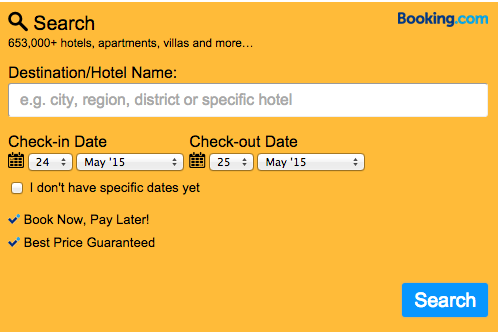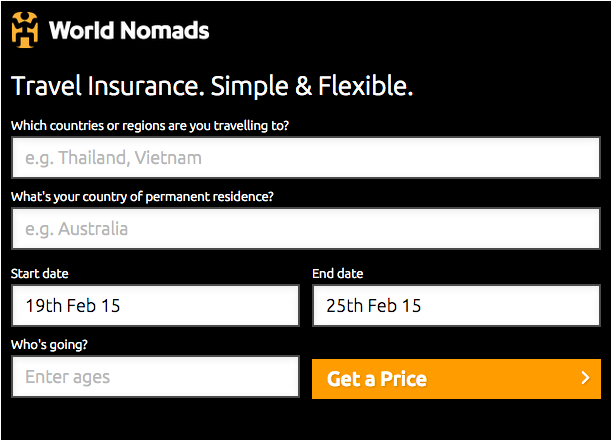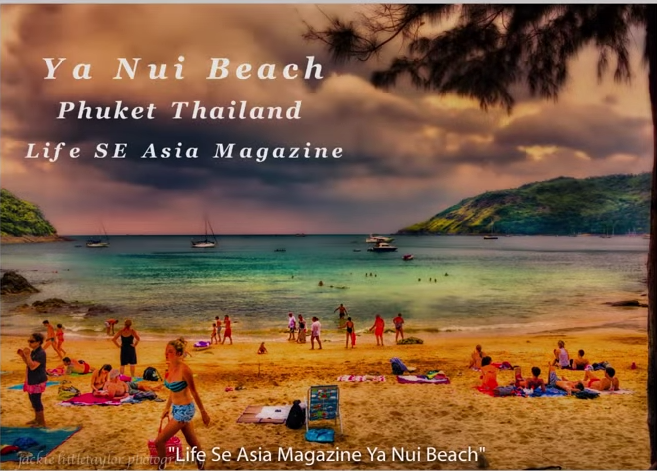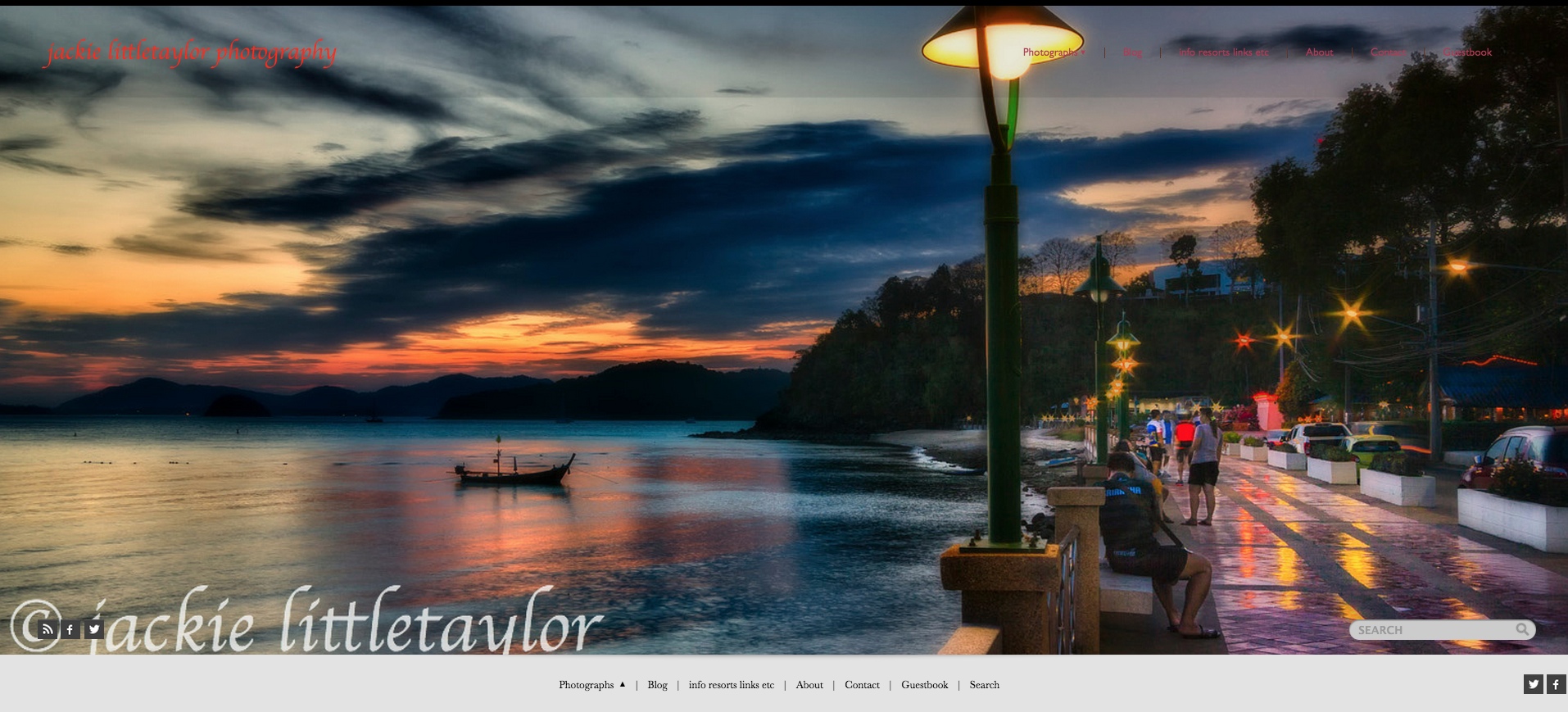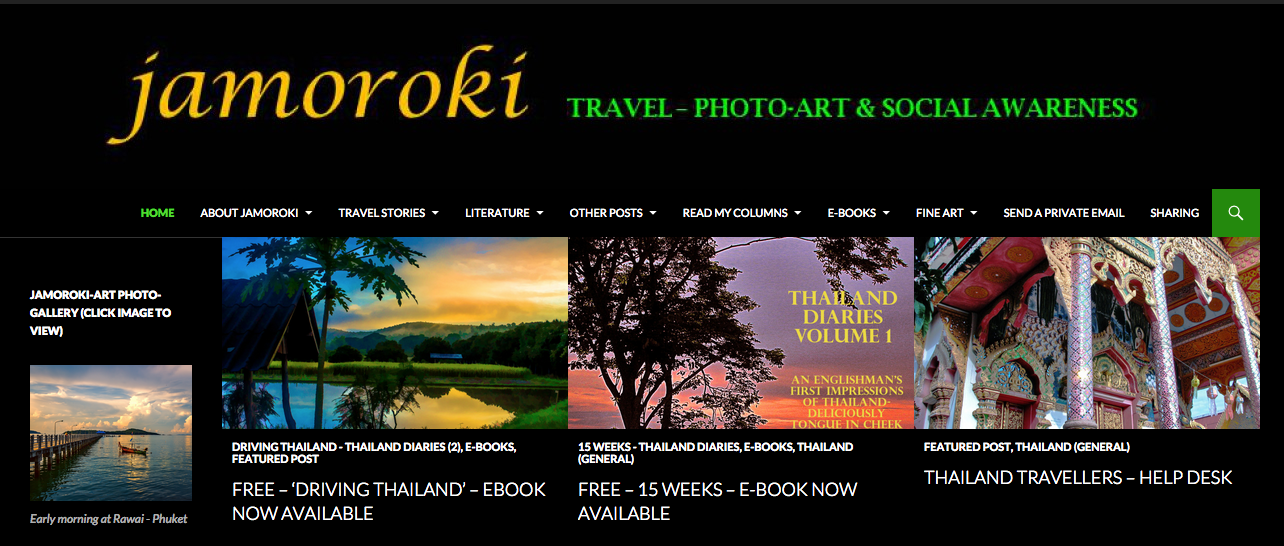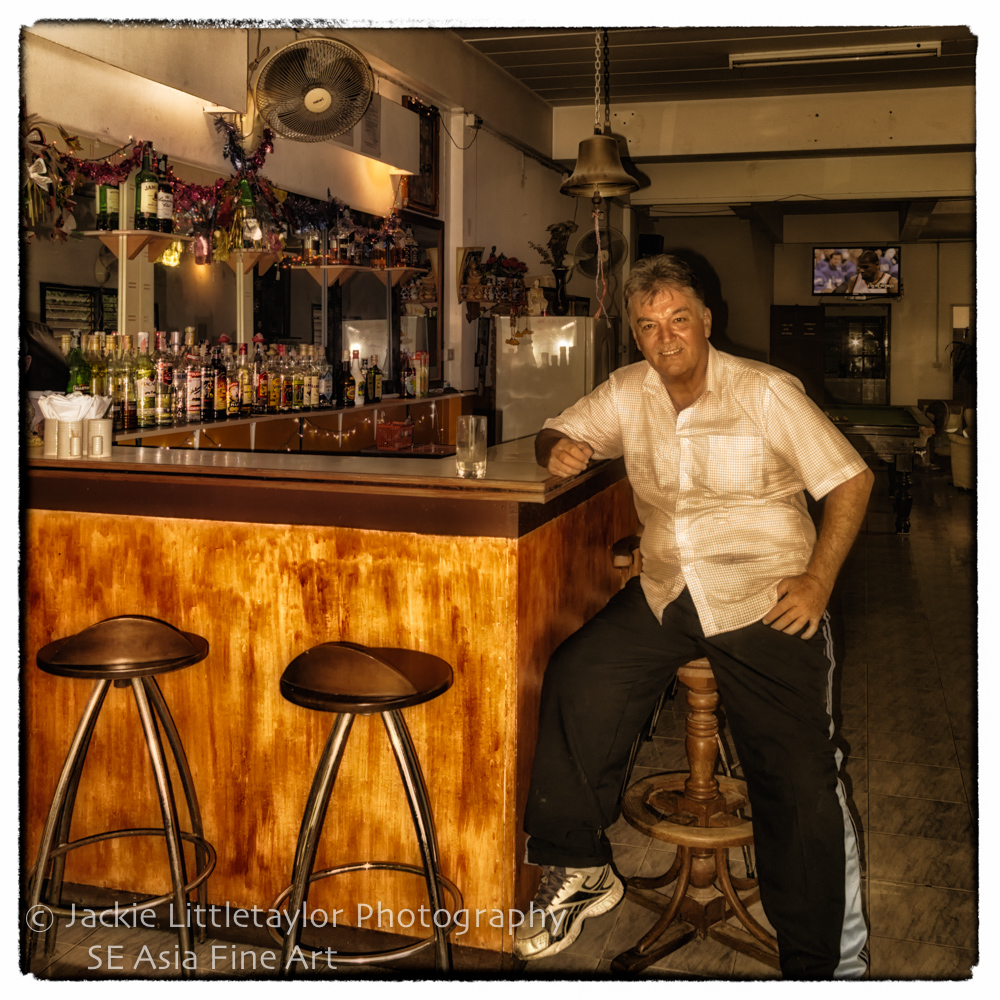General Visa Information
we are not lawyers and this is just general information on getting a visa , types, and what is required. Check with you Country Embassy for more information.
Tourist visas allow visitors to enter and exit Vietnam at Hanoi, HCMC and Danang airports airports or at any of its plentiful land borders, shared with Cambodia, China and Laos.
Tourist visas are valid for a single 30-day stay. The government often talks about issuing visas on arrival to certain favoured nationalities, but as yet this sensible scheme has failed to materialise beyond the immediate Asean neighbours. Arranging the paperwork for a Vietnamese visa has become fairly straightforward, but it remains expensive and unnecessarily time-consuming. Processing a tourist-visa application typically takes four or five working days in countries in the West.
It is possible to arrange a visa on arrival through a Vietnamese travel agent. They will need passport details in advance and will send a confirmation for the visa to be issued at your airport of arrival.
In Asia the best place to pick up a Vietnamese visa is Cambodia, where it costs around US$30 and can be arranged the same day. Bangkok is also a popular place as many agents offer cheap packages with an air ticket and visa thrown in.
If you plan to spend more than a month in Vietnam, or if you plan to exit Vietnam and enter again from Cambodia or Laos, arrange a three-month multiple-entry visa. These cost around US$95 in Cambodia, but are not available from all Vietnamese embassies.
In our experience personal appearance influences the reception you receive from airport immigration – if you wear shorts or scruffy clothing, or look dirty or unshaven, you can expect problems. Try your best to look ‘respectable’.
Peter’s Visa Run To Thailand
Options for visas:
You can choose to get either a 3-month visa or a 6-month visa. With that you can choose either “single entry” or “multiple entries.” The 6-month is almost double the price of 3-month so most people choose 3-month. Likewise, “multiple entries” is more expensive than “single entry.” You can also choose between getting a “tourist” or “business” visa, the ladder of which is more expensive. Visa regulations in Vietnam continue to shift like the dunes of the Sahara, but at the moment, here are the prices for the two most commonly purchased visas.
3-month single entry tourist visa: 45 USD
3-month multiple entries tourist visa: 95 USD
If you have some business related endeavors that require an extended stay in Vietnam, you will have to check with the latest policy changes
This was dated June 2015 and to read more about Peters advice and experience go to Peter’s Visa Run To Thailand
Business visas
Business visas are usually valid for three or six months, and allow multiple entries and the right to work. Getting a business visa has now become cheap and easy, although prices are about double those of a tourist visa. It is generally easier to apply for a business visa once in Vietnam, after having arrived on a tourist visa. Or pick one up in Cambodia.
Re-Entry Visas
It’s possible to enter Cambodia or Laos from Vietnam and then re-enter without having to apply for another visa. However, you must apply for a re-entry visa before you leave Vietnam. If you do not have a re-entry visa, you will have to go through the whole visa process again.
Re-entry visas are easiest to arrange in Hanoi or HCMC, but you will almost certainly have to ask a travel agent to do the paperwork for you. Travel agents charge about US$25 for this service and can complete the procedure in a day or two.
Student Visas
A student visa is usually arranged after your arrival. It’s acceptable to enter Vietnam on a tourist visa, enrol in a Vietnamese language course and then apply at the immigration police for a change in status. In reality, the easiest way to do it is to contact a travel company and have them help you make the application.
Visa Extensions
If you’ve got the dollars, they’ve got the rubber stamp. Tourist-visa extensions officially cost as little as US$10, but it is easier to pay more and sort this out through a travel agency. Getting the stamp yourself can be a bureaucratic nightmare. The procedure takes two or three days and you can only extend one time for 30 days.
In theory you should be able to extend your visa in any provincial capital. In practice it goes smoothest in major cities, such as HCMC, Hanoi, Danang and Hue, which cater to regular visitors.
Read more: http://www.lonelyplanet.com/vietnam/practical-information/visas#ixzz3LEFTSsFj
Get in
Visitors with passports from these countries do not require a visa for stays up to the days specified:
- 15 days - Denmark, Finland, Japan, Norway, South Korea, Sweden, Russia
- 21 days - Philippines
- 30 days - Indonesia, Laos, Malaysia, Singapore, Thailand
All other nationalities will require a visa in advance to visit Vietnam.
If purchasing your visa from the Vietnamese embassy in London, as of January 2013 a 30-day single entry visa will cost you GBP54 (GBP69 for 2 day service, GBP75 for next day), while a 30 days multiple entry visa costs GBP85 (GBP105 for 2 day service, GBP115 for next day). You must also pay up to GBP8 postage per passport (depending on how many are being processed) if you need it posted back to you.
If purchasing from the embassy of Vietnam in Wellington, New Zealand, as of May 2014, a 30-day single entry visa will cost $120, 30 day multiple entry for $140, $220 for a 90 day single entry and $240 for a 90 day multiple entry. In person or by post. If by post, enclose a paid for courier bag. Either way, processing time around 3 days.
In Cambodia, Vietnam visas can be obtained at the embassy in Phnom Penh or at the consulates in Battambang and Sihanoukville. The uniform cost for a 30 day visa is USD60. Visa processin officially takes 48 hours in Phnom Penh and Battambang. On the spot visa issuance is only possible in Sihanoukville. Travel agencies can obtain the visa for you for a fee (USD1-5).
The consulate in Vientiane, Laos, offers them for USD50 with delivery the day after (paying in local currency is more expensive).
The consulate in Luang Prabang, Laos at 427-428 That Bosot Village offers a visa service. Office hours M-F 07:30-11:30 & 13:30-16:30 Tel 254748 / 254749 Fax:-254746 Email:- [email protected]. It’s better to do your visa here than going to agents, as agents charge an extra USD15. Visa price is USD40 and takes 3 working days. Go to the Tourist Information for the location if you’re not sure, they will be able to help you. It’s only a 10min walk from the Tourist Information. October 2012: the clerk who fills out the receipt asks for an additional USD5 (or LAK40,000) for the handling. April 2014: using the Vietnamese Consulate of Pakse (Southern Laos) will cost you USD70 (!) and 3 working days…
Vietnam Embassy in Bangkok is on Thanon Witthayu (AKA Wireless Road), near the other embassies. It’s a quick process (10-15min) as long as there isn’t a queue. Nov 2012 - Vietnam Embassy in Bangkok charges 1,800 baht (c. USD62) for a 30-day single-entry visa, 4 working days. 2,700 baht for 30-day single-entry visa, next (Working) day. Bear in mind that if you go on a Friday, you still have to wait until Monday to get your visa even if you paid for next day. If you don’t have a passport photo, go out of the embassy, turn left and a hundred metres up the road on the left is a big shopping centre, called All Season’s Place. On the 3rd floor there is a Kodak shop called Sprint Photo Fast which will do 6 passport/visa photos for THB120. Make SURE to tell them it’s for a Vietnam visa as passport photos and visa are different sizes for different countries. Vietnam requires a 2 in x 2 in photo. If staying on Khao San road (which a lot of travellers/backpackers do), taxi /tuk tuk drivers may be unwilling to take you here on the meter, especially close to rush hour, as it is quite far and in an awkward place on the one way system. They’d rather scam a couple other people in the same time it would take.
The Vietnamese Consulate in Khon Kaen, Thailand also offers tourist visas. (UPDATED: March 2013) A single entry tourist visa valid for 30 days costs THB2500. A single entry 3-month tourist visa costs THB4000. A multiple entry, 3-month visa costs THB5500. The consulate only accepts Thai baht in cash (no other currencies or credit cards). Visas can be picked up the same day if submitted in the morning. If submitted in the afternoon, you can pick up your visa the next morning. The consulate is closed on weekends. Some consular staff speak English. You will need a passport photo (bring 2 just in case), application form (available at the consulate), and payment.
May 2014 - The Vietnam Economic and Cultural Office in Taipei also offers visa services, both to Taiwan residents and tourists in Taiwan. Address is 65 Songjiang Lu, hours M-F 8:30-12 & 14-16:30. You only need your passport, application form, and one passport photo (No ARC required, even “high risk” nationalities such as Pakistani citizens don’t need any other documentation or approval letter). Visa price is 1850 TWD for standard Single entry - 30 days, 3 day processing. Same day and next day processing is available, along with multiple entries for a higher price.
November 2010 - the Vietnamese Mission to the UN in New York City charges USD80 for a 30-day single-entry visa. Cash or money order is accepted. Processing takes 6 business days. Expedited service (4 business days) is available for USD110.
June 2012 - a single-entry tourist visa valid for 30 days costs USD90 at Washington DC and takes around 4-7 days to process; express visas take 2-3 days for an additional USD30. A multiple entry, 1 month visa is USD140 and multiple entry, 3 month visa is USD170.
February 2013 - The Consulate General of Vietnam in San Francisco, United States charges USD100 for a 30-day single entry visa. Cash or money order is accepted.
April 13, 2014 - The Consulate General of Vietnam in Vancouver, Canada charges CAD100 for a 30-day single entry visa.
November 2010 - Vietnam Embassy in Canberra, Australia charges AUD75 for a 30 day single entry visa. Approx 3 days to process. Other consular services at this embassy have been reported as slow and costly (4 weeks for Ex-Vietnamese seeking 5 year Visa exceptions - and the passport must have 5 years of life left).
June 2011 - the Vietnamese Embassy in Kuala Lumpur charges MYR200 for a 30 day single entry visa, takes 5 working days; MYR300 2 working days.
June 2013 - the Vietnamese consulate in Hong Kong charges HKD500 for 30 day single entry visa - takes a few (three-ish) working days. Bring one passport photo and a filled out (rather tatty out-dated scanned) form from the web. Pretty relaxed by Hong Kong standards.
November 1, 2012 - the Vietnamese Embassy in Singapore charges SGD85 (about USD70) for a 30 days single entry visa, 6 working days to process
Embassies are recalcitrant in publishing a schedule of fees, as the relatively high visa cost is a source of embarrassment, revenue, and a tourism deterrent (EU and US). A slowdown in tourist number arrivals has been disguised by the removal of visa fees for certain nationalities (but not former Vietnamese) resulting in neighbouring countries numbers filling the vacuum. Visa free travel for neighbouring countries is part of Vietnam’s commitment to visa free travel for fellow citizens of ASEAN (The Association of South East Asian Nations)
Foreign citizens of Vietnamese origin can apply for visa exemption that allows multiple entry for 3 months at a time which is valid for the duration of the passport.
Update on Visa on arrival Vietnam announces waiver on visa requirements
Visa on arrival
This method is available only for Air travel.
The term visa on arrival is a bit of a misnomer in the case of Vietnam as a letter of approval has to be obtained before arrival. This is handled by a growing number of on-line agencies for a charge of USD10-21 (Aug 2014). Most agencies accept payment by credit card, some accept payment by Western Union or Paypal. You also have to pay stamp fee at the airport when arrival. You need 1 photo.
The visa on arrival fees 2014
- One month – single entry USD45
- One month – multiple entry USD65
- Three months – single entry costs the same with one month single entry
- Three months – multiple entry USD95
- Six months – multiple entry USD135
The Foreign and Commonwealth Office of Her Majesty’s Government in London states “We are aware that there are nearly 1000 travel companies that are able to arrange legitimate visas-on-arrival but this must be done prior to arrival in Vietnam. There have also been reports of bogus companies that claim to be able to arrange for a visa on arrival. As the British Embassy and Consulate cannot confirm whether a company has a legitimate arrangement in place, the safest way to obtain a visa is via the nearest Vietnamese Embassy. Vietnamese visas are usually valid for only one entry. If you plan to leave Vietnam and re-enter from another country make sure you obtain a visa allowing multiple entries.”
The situation is complicated by the fact that the Internet high level domain “gov.vn” does not necessarily denote a government agency!
The agent - located in Vietnam - obtains from the Department of Immigration a letter of approval bearing the traveller’s name, date of birth, date of arrival, nationality and passport number, and then forwards that letter to the traveller (in PDF or JPEG format) by email or fax, usually within three working days. It is common to get the letter with several other applicants passport details (passport number, date and place of birth, full name, etc.). You might share your personal information with up to 10-30 other applicants on the same letter(s). For persons who are concerned about their privacy or security, it is recommended to check first if the agencies have an option for a separate or private approval letter (Private Vietnam visa on arrival) on their website. Very few on-line agencies have this option. Another solution is to apply for a regular visa through an embassy to keep your personal details private.
After landing at one of the three international airports (Hanoi, Ho Chi Minh City and Da Nang), the traveller goes to the “Visa upon arrival Counter” and shows the letter, fills in an additional arrival form (can be pre-filled before departure) and receives an official stamp (sticker) in his or her passport. As of July 2013 a stamping fee in cash, of US$45 or US$65 for a single or multiple entry visa respectively, is payable at the time - only U.S. dollars or VND are accepted (no other currency or credit card) and the notes must be in as-new condition or they will be refused. One passport photo is required (often 4X6 cm). For a few $US, they can take a photo for you.
Note that visas on arrival are not valid for border crossings and the official stamp can only be obtained at the three international airports. Therefore, travelers arriving by land from Cambodia, Laos or China must be in possession of a full visa when they arrive at the border.
A third alternative, ‘Visa Code’ appears to be another option [More references needed] where on-line approval is first obtained - with a code, then you take the passport to the Embassy for the visa to be ‘stamped’. The cost for service fee is cheaper than at the embassy in Europe or America. In Asia the cost will be almost the same as the regular total visa fee. However, you will avoid to go back and forth to the embassy.
Passengers of Air Asia and some other airlines travelling to Vietnam must present the approval letter at check-in.
Vietnam has moved away from arrival/departure cards.
US EMBASSY INFORMATION
To enter Vietnam, you need a valid U.S. passport with at least six months validity remaining beyond the date of your arrival and a Vietnamese visa, a visa exemption document, or a written approval letter for a visa upon arrival. You may obtain a visa or a visa exemption document from a Vietnamese embassy or consulate prior to traveling to Vietnam. To obtain a written approval letter, you must contact a travel agency prior to departure for Vietnam. U.S. citizens have reported unscrupulous travel agencies taking advantage of travelers and charging extremely high fees upon landing. If you arrive without an appropriate Vietnamese visa, exemption document, or written approval for a visa upon arrival, you will be denied entry and subject to immediate deportation. Vietnamese visas are usually valid for a single entry, unless the traveler specifically requests a multiple-entry visa, which may incur additional fees. If you plan to leave Vietnam and re-enter from another country, be sure that your visa is multiple entry. If it is only single entry, you will have to obtain another visa prior to returning to Vietnam.
Please be aware that Vietnam has two fees: 1) the visa fee and 2) the visa processing fee. The visa fees are sometimes posted on theVietnamese Embassy’s website, but U.S. Embassy and Consulate officials have received reports of processing fees that vary from one applicant to another and from one issuing entity to another. We have also received reports of additional fees being charged by Vietnamese officials at land borders. We have brought this concern to the attention of Vietnamese officials, but the problem persists.
Even if you have a valid visa, you may be refused entry into Vietnam. Note that Vietnamese immigration regulations require foreigners entering Vietnam to undertake only the activity for which their visas were issued. Travelers who plan to perform volunteer or charitable work should obtain the correct visa classification before traveling to Vietnam. If you change the purpose of your visit after you have received your visa, you must obtain a new visa appropriate for your new activities before beginning those activities. If you plan to travel from Vietnam to Laos by land, you must obtain the type of Vietnamese visa that adheres to the passport. Lao immigration requires proof that travelers have departed Vietnam, something that can only be shown with an adhesive visa. Vietnamese officials remove detachable visas from passports when travelers depart Vietnam, leaving travelers with no proof of their Vietnam departure. This situation can result in Lao officials requiring the traveler to return to Vietnam.
If your U.S. passport is lost or stolen in Vietnam, you must obtain both a replacement passport and a replacement Vietnamese visa. In the event of an emergency, the U.S. Embassy and Consulate General can issue you a limited validity replacement passport in as little as one day; however, the Vietnamese government requires three to five working days to issue a replacement visa. Neither the U.S. Embassy nor the Consulate General can expedite replacement Vietnamese visas.
Visit the Vietnamese Embassy’s website for the most current visa information. The Vietnamese Embassy’s website also releases warnings about websites suspected of being fraudulent and strongly recommends U.S. citizens not make online visa applications to these websites.
The Government of Vietnam may not allow or authorize travel to certain areas of Vietnam that are deemed sensitive. These travel limitations may hinder the ability of the U.S. government to provide assistance to you in such areas. Check with local authorities before visiting border areas to see if you need to obtain a travel permit issued by local authorities. U.S. citizens have been detained after traveling in areas close to the Vietnamese borders with China, Cambodia, and Laos. These areas are not always marked, and there are no warnings about prohibited travel. You should avoid such areas unless you obtain written permission in advance from local authorities.
Exercise caution in choosing ground transportation upon arrival at the airport in Hanoi or Ho Chi Minh City. Some travelers have reported being robbed by drivers who greeted them upon arrival with a placard showing the traveler’s name. If you are expecting to be picked up, ask the company for the driver’s name, phone number, and license plate number before you travel. Use only established airport taxi companies or vehicles provided by hotels. Several times in the past year in Hanoi, taxi drivers detoured travelers en route from the airport to flophouses masquerading as hotels. You should be familiar with the basics of the hotel you have chosen, such as address and neighboring landmarks. This information can be found on the Internet.
Hotels: Hotels in Vietnam require you to present your passport (and visas, if issued separately) upon check-in so that your stay can be registered with local police. Therefore, carry these documents with you if you change hotels. Every guest in a hotel room must be registered, and it is illegal for a foreigner to share accommodations with a Vietnamese national. If you stay at a private residence, (i.e. at the residence of family or friends) you must comply with registration requirements by visiting the local police station and registering your stay within 24 hours.
Currency: For up-to-date information about the amount of U.S. dollars or other foreign currency you can import into Vietnam or export from Vietnam, you should contact the Vietnamese Embassy.
Speech: The Government of Vietnam maintains strict control over all forms of political speech, particularly dissent. Persons — both Vietnamese and foreign citizens — engaging in public actions that the Government of Vietnam determines to be political in nature are subject to arrest and detention. Even your private conversations can lead to legal actions. U.S. citizens have been detained and arrested for political activities (including criticizing the government or its domestic/foreign policies or advocating alternatives to Communist Party rule), possession of political material, and non-sanctioned religious activities (including proselytizing). U.S. citizens whose stated purpose of travel was tourism but who engaged in religious proselytizing have had religious materials confiscated and have been expelled from Vietnam. Sponsors of small, informal religious gatherings, such as Bible-study groups in hotel rooms, have been detained, fined, and expelled, although these outcomes have become less common because of improvements to religious freedom.
Blogging about the Vietnamese government and discussions in on-line chat rooms have also incurred scrutiny from authorities. The distribution of anti-Vietnamese propaganda and/or advocacy for a multiparty system is considered by Vietnamese authorities to be “a terrorist offense” and/or “propaganda against the state.” In most cases individuals are detained, questioned, and then released. In the past few years, many U.S. citizens were arrested, prevented from leaving Vietnam, and/or deported.
Health
Medical facilities in Vietnam frequently do not meet international standards and may lack medicines and supplies. Medical personnel in Vietnam, particularly outside Hanoi and Ho Chi Minh City, may speak little or no English. Doctors and hospitals expect immediate cash payment for health services. International health clinics in Hanoi and Ho Chi Minh City can provide acceptable care for minor illnesses and injuries, but more serious problems will often require medical evacuation to Bangkok or Singapore. Although you can purchase many medications at pharmacies without having a prescription, some common U.S. medications are not available in Vietnam. You should bring adequate supplies of medications for the duration of your stay in Vietnam. You may obtain lists of local English-speaking physicians from the U.S. Embassy in Hanoi or the U. S. Consulate General in Ho Chi Minh City. Neither the Embassy nor the Consulate General may recommend specific medical practitioners or hospitals. Emergency medical response services are generally unresponsive, unreliable, or completely unavailable.
We recommend having Travel Insurance
Be cautious about drinking non-bottled water and about using ice cubes in drinks. You may wish to drink only bottled or canned beverages or beverages that have been boiled (such as hot tea and coffee).
http://vietnamembassy-usa.org/consular/visa-application-process
Money ATM Credit Cards and more
The national currency is the dong (internationally symbolised as VND, but written as đồng in Vietnam), which is difficult to find or exchange outside Vietnam; change money on arrival and try to get rid of any leftovers before leaving the country. Continuing inflation and a series of devaluations continues to steadily push down the value of the dong, with USD1 worth over 21,000 dong in April 2014. Banknotes are available in denominations of 500, 1000, 2000, 5000, 10,000, 20,000, 50,000, 100,000, 200,000 and 500,000 dong. In 2003, coins were also introduced in denominations of 200, 500, 1000, 2000 and 5000 dong, although these are rarely seen.
For credit card payments, there is usually a 3% surcharge, so cash may be advantageous for large transactions.
Traveller cheques of well known companies are widely accepted, but usually a small fee is charged. Fees might also be the only thing that would keep you from getting cash advances on Visa- or MasterCard at most banks. Through both ways you can also get hold of US dollars, though there will be even higher fees. There are mentions in some popular travel books about Vietcombank not charging any commission fees to cash AMEX travellers cheques. However, this is not true any more.
ATMs are becoming more and more common and can be found in most bigger cities and every tourist destination. They will accept a selection of credit and bank-cards, including Visa, MasterCard, Maestro or Cirrus and several other systems. Typically withdrawals are limited to 2,000,000 dong per transaction, and will incur a 20,000 dong service fee.
There are branches of money transfer companies like Western Union, but this is always one of the more expensive ways to get money.
On most land borders connecting to Cambodia, China, and Laos there are freelance moneychangers to take care of your financial leftovers, but be assured they’ll get the better of you if you don’t know the going rate. Note for travellers departing from Hanoi airport: There are no money exchange establishments once you finish your immigration, so exchange your dong before you enter the departure hall unless you plan to shop.
Most major currencies can be exchanged at leading banks in Vietnam, but away from the tourist centres the US-dollar remains king. Vietcombank is the most organised of the local banks for changing cash and can deal with euros, pounds and pretty much anything else you are packing. The US dollar exchange rate worsens the further you get from the tourist trail, so stock up on dong if you are heading into remote areas. In small towns it can be difficult to get change for the larger notes, so keep a stack of smaller bills handy. Changing US$100 will make you an instant millionaire.
It’s a good idea to check that any big dollar bills you take do not have any small tears or look too tatty, as no-one will accept them in Vietnam.
You cannot legally take dong out of Vietnam but you can reconvert reasonable amounts of it into US dollars on departure.
Most land border crossings now have some sort of official currency exchange, offering the best rates available in these remote parts of the country.
Western Union Vietnam
Send money to Vietnam with westernunion.com
Chào! We know how important your family and friends back home are to you. Western Union makes sending money to Vietnam fast and easy. You can send dong anywhere in Vietnam — from Ho Chi Minh City to Hanoi to Da Nang. Send money from westernunion.com to let a loved one know you’re thinking about them. Price your transaction here.* Starting at $1 fee* to send up to $10.
Sending money online with Western Union has its advantages.
It’s fast. Your family and friends can pick up the money in minutes*** at any of our more than 9,450 Western Union® agent locations in Vietnam.
It’s convenient. Whether you’re online or on the go, we make it easy and convenient for you to send money to Vietnam. Use our four-star rated mobile app on your Android®, iPhone®, or iPad® to send money today.
It’s easy. Send money online in a few simple steps. You choose how you want to pay—whether it’s through your bank account, debit card, or credit card**.
Communication
Internet censorship in Vietnam
Internet censorship in Vietnam prevents access to websites critical of the Vietnamese government, expatriate political parties, and international human rights organizations, among others.[1] Online police reportedly monitor Internet cafes and cyber dissidents have been imprisoned. Vietnam regulates its citizens’ Internet access using both legal and technical means. The government’s efforts to regulate, monitor, and provide oversight regarding Internet use has been referred to as a “Bamboo Firewall”.[2]
The OpenNet Initiative classified the level of filtering in Vietnam as pervasive in the political, as substantial in the Internet tools, and as selective in the social and conflict/security areas in 2011,[3] while Reporters without Borders considers Vietnam an “internet enemy”.[1][4]
While the government of Vietnam claims to safeguard the country against obscene or sexually explicit content through its blocking efforts, many of the filtered sites contain politically or religiously critical materials that might undermine the Communist Party’s hold on power.[5]Amnesty International reported many instances of Internet activists being arrested for their online activities.[6]
Social networking
The popular social networking website Facebook has about 8.5 million users in Vietnam and its user base has been growing quickly after the website added a Vietnamese-language interface.[9] During the week of November 16, 2009, Vietnamese Facebook users reported being unable to access the website.[10] Access had been intermittent in the previous weeks, and there were reports of technicians ordered by the government to block access to Facebook.
A supposedly official decree dated August 27, 2009, was earlier leaked on the Internet, but its authenticity has not been confirmed.[10] The Vietnamese government denied deliberately blocking access to Facebook, and the Internet service provider FPT said that it is working with foreign companies to solve a fault blocking to Facebook’s servers in the United States.[11]
Blogging
In Vietnam, Yahoo! 360° is a popular blogging service. After the government crackdown on journalists reporting on corruption in mid-2008, many blogs covered the events, often criticizing the government action. In response, the Ministry of Information proposed new rules that would restrict blogs to personal matters.[12]
Global Voices Advocacy maintains a list of bloggers who have been arrested for their views expressed online.[13]
Instant messaging
Yahoo! messenger is amongst the instant messaging software that appears to be monitored, with messages often blocked (i.e., not seen by intended recipient).
Mobile phones
Compared to that of neighboring countries such as China and almost all the countries in the world, mobile telephoning and mobile Internet in Vietnam are indeed very cheap. Just buy a pre-paid card in the streets and you will be able to call to your home countries for as cheap as 4,000 VND per minute (around 0.19 USD or 0.15 Eur as of Aujust 2013). Domestic calls to land line and mobile numbers from a pre-paid simcard cost around 1,300 VND per minute. Also the good thing is, you often get a call credit as much as 2-3 times the price you pay for the pre-paid simcard. For instance, if you buy a simcard for VND 50,000, you can have VND 100,000 to VND 150,000 pre-paid call credit. Operators also have special offers as often as 3 times per month so if you buy scratch cards to recharge your account during those special offer days, you will get 50% more of the call credit (recharge VND 100,000, get VND 150,000 in your account).
Stick with one of the 3 major operators which are Mobilefone, Vinaphone and Viettel. They are the prevailing GSM operators in Vietnam and offer good quality service and also their mobile Internet service is reliable. In Vietnam, mobile Internet is very convenient. The 3 mentioned prevailing service providers offer 3G (HSDPA) service in all over the country for as cheap as VND 50,000 (around USD 2.5) for 1 GB data download and upload. You have to register on you phone to use that special package rate, otherwise the rate will be higher. If you register for that package, the good thing is they allow you to continue using data service at 256 kbps at no additional cost after 1 GB is used up.
The current law if Vietnam requires that pre-paid mobile phone users have to register their identity before the simcards can be activated, but don’t worry. Shops often sell simcards that are already activated. The simcards are new and never used, but the shops already register the simcards under someone’s name (fake names) so that they don’t have to register or take any actions at the time they sell the simcards to you.
Compared to China, where you have to register a pre-paid simcard for 15 days before you can use their mobile Internet service, which makes it virtually impossible for you to use mobile Internet in China during a short stay, using mobile phones with mobile Internet in Vietnam is just easy, and cheap.





